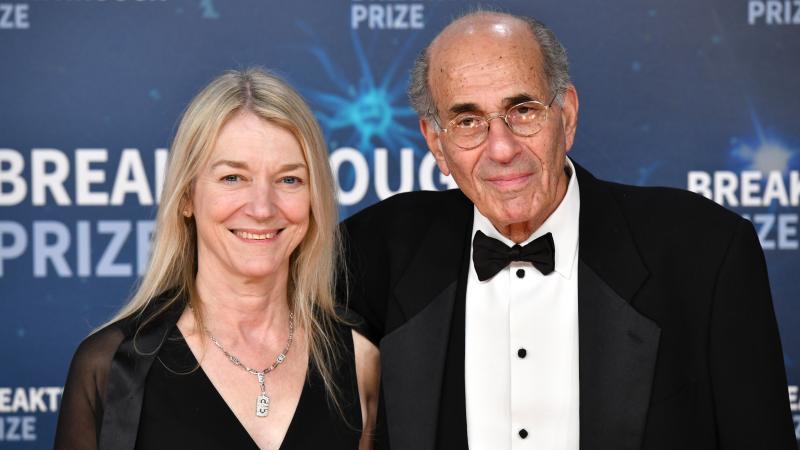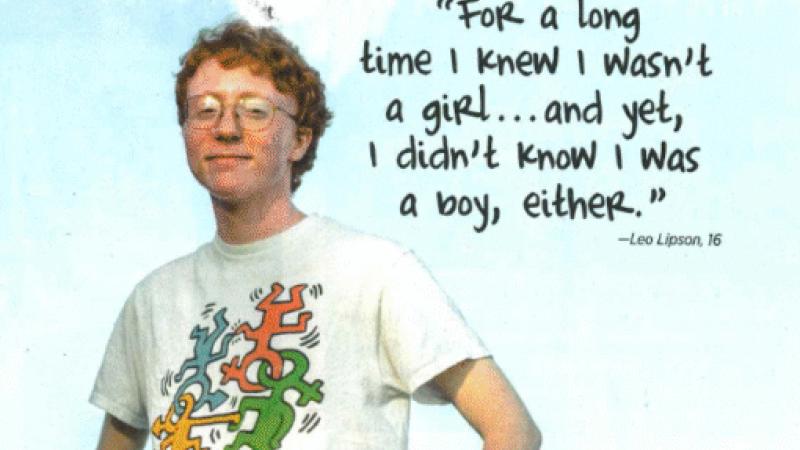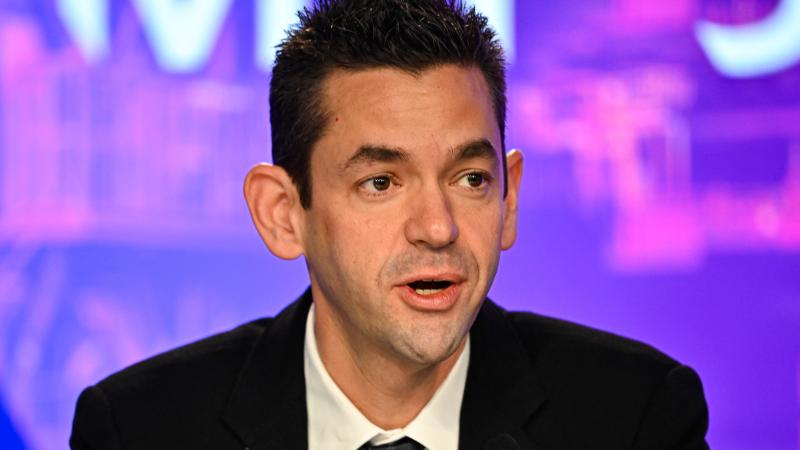University of Missouri medical school had students watch scientifically suspect TED Talks
FOIA records show orientation programming conflated sex and gender identity, "professional development" training claimed misgendering causes psychological harm. Both included "unconscious bias" book.
The University of Missouri School of Medicine has trained employees and incoming students to see medicine through the lens of trendy ideologies on race and gender, according to materials shared exclusively with Just the News, and it's not clear the programs were scientifically valid.
Advocacy group Do No Harm, which targets wokeness in medicine, provided the only two documents Mizzou Med turned over in response to Freedom of Information Act requests spanning the 2020-2022 academic years. Both are from 2020.
Mizzou Med referred Just the News queries to the university itself. Uriah Orland, associate director of the news bureau, said the "Common Read" student orientation wasn't repeated but didn't explain why, and that it was "student-driven and optional."
He didn't answer when shown Mizzou Med statements portraying the orientation as mandatory, or explain how many times the "Inclusive Excellence Professional Development Series" for employees was conducted, only that it "was optional" as well.
Do No Harm's FOIAs sought "instructional material that contains keywords such as 'DEI, health equity, anti-racism,'" program manager Laura Morgan wrote in a statement given to Just the News. "We have active legislative efforts going on in [Missouri] and have seen other things coming out of Mizzou Med that are concerning to us."
A welcome letter for the Class of 2024 fleshes out the content of the orientation program that Mizzou Med previewed in June 2020. "All incoming medical students" will read the book "Seeing Patients: Unconscious Bias in Health Care" and discuss it in small groups, the school said.
Conceived by a student and approved by the Office of Medical Education to begin in the 2020-2021 school year, Common Read's first cohort focused overwhelmingly on TED Talks, made popular by the pricey conferences described in various media profiles as religious revivals for secular audiences.
One video featured "social entrepreneur" young women who founded a "racial literacy" nonprofit as teenagers. Another about the danger of "race-based medicine" features a law professor who has argued "scientists invented race as an explanation for social inequality."
A video titled "what doctors should know about gender identity" features a clinical sexologist who appears to disregard the vast medical differences between the sexes beyond genitalia and their implications for treatment.
The sexologist repeatedly describes her transgender patients who are natal males as "female," rather than calling them "transgender women," which refers to a social category for men who identify as the opposite sex. Transgender people are at higher risk for substance abuse due to "lack of acceptance" such as not using their preferred names and pronouns, the speaker said without providing evidence.
The only medical material provided in the Common Read program is a New England Journal of Medicine paper that both claims "structural racism" is "a root cause of U.S. racial health inequities" and that researchers have trouble measuring it because of insufficiently correlated data.
Another recommended article is about the lingering local effects of racial segregation. Separating the races into their own "affinity groups" that are off-limits to members of different races is a growing trend in medical education, though Just the News did not find such groups at Mizzou Med.
The purpose of Common Read is facilitating "meaningful conversations around health inequities and social injustice" from the start of med school, understanding "all the intersections of each individual patient" and cultivating "culturally aware future physicians," the welcome letter says.
Though Orland said Common Read wasn't offered in subsequent years, Mizzou Med promoted the program again in a September 2021 profile of its student creator, Abdoulie Njai, who said learning about "implicit bias, diversity, equity and inclusion is just as important as ... learning how the heart pumps or learning about pharmacology."
The profile said the book Njai chose, which alleges implicit bias can "affect the type of diagnosis and treatments that are offered," was "required reading" for new students. The scientific validity of implicit bias has been repeatedly challenged in recent years.
The page for the "Inclusive Excellence Professional Development Series" for employees, run by the university's diversity office on behalf of the med school, was taken down sometime after May 2022 and only mentions the spring 2020 curriculum, which was also promoted in early 2020 newsletters by the faculty and staff diversity committees.
The med school's diversity office mentions Mizzou's university-wide "Inclusive Excellence Framework," which does not publicly specify programming.
The curriculum linked from the removed program page is less detailed than the version Do No Harm obtained, which shows that participants read the same unconscious-bias book used in orientation and studied "intercultural competencies," "cultural humility" and "intergroup empathy" in healthcare.
Another session on "Pronoun Power & Gender Identity Solidarity" suggests employees could be disciplined for refusing or repeatedly forgetting to use "gender-affirming language" including preferred pronouns.
Declaring that "respecting gender identity is at the core of excellence in health care practices," the description says participants will discuss the "psychological and emotional effects of (mis)gendering patients and colleagues" and learn how to "incorporate affirming and inclusive ways to serve patients and members of the community."
Such sanctions could get the taxpayer-funded medical school in legal trouble. A public university paid a professor $400,000 after a federal appeals court concluded it likely violated his First Amendment rights by punishing him for refusing to use a transgender student's preferred pronouns.
"The University of Missouri School of Medicine is committed to creating an environment where our medical students are prepared to treat patients from all walks of life," Orland wrote in a statement.
"The diversity education in medical school does not address ideology or philosophy, rather it relates directly to basic cultural competency and educates our students on the social, behavioral, environmental and economic factors that can affect a patient’s health," he wrote.
Orland didn't answer two queries seeking the evidence for the employee training's claims about the effects of misgendering and whether and how Mizzou Med punishes misgendering, and whether it offers programming analogous to Purdue University's free-speech orientation.
The Facts Inside Our Reporter's Notebook
Documents
Videos
Links
- Mizzou Med's announcement
- various
- media
- profiles
- "racial literacy" nonprofit
- "race-based medicine"
- "scientists invented race as an explanation for social inequality
- "what doctors should know about gender identity"
- vast medical differences between the sexes
- New England Journal of Medicine paper
- lingering local effects of racial segregation
- growing trend in medical education
- September 2021 profile
- scientific validity of the concept
- repeatedly challenged
- recent years
- orientation page
- taken down sometime after May 2022
- early 2020
- newsletters
- diversity office
- "Inclusive Excellence Framework
- curriculum linked from the removed program page
- public university paid a professor $400,000
- Purdue University's free-speech orientation
















